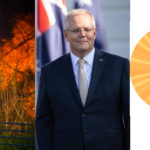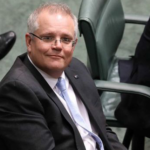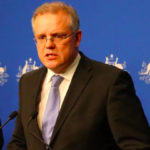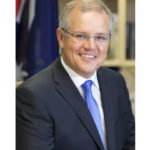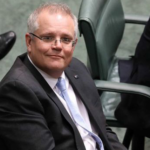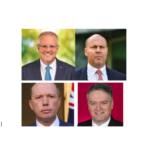The Great Dividing Range Between Government and the People
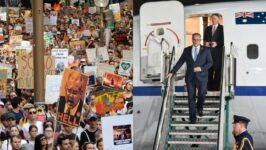
If the pandemic has taught us anything, it’s that public trust in government is vital in times of crises. And during the current global health emergency, the lack of belief in the political class and its institutions has been stark.
The mass of online chatter revealing widespread doubts about how governments are handling the COVID-19 response has been overwhelming, with the more extreme versions entailing the virus being a fraud and government using this deceit as a means to enhance control.
Requiring entire populations to alter their behaviour so drastically as to lockdown relies upon the public believing in their leaders, and this element of trust is paramount when the directions are designed to save large loss of life.
An ANU analysis of the 2019 federal election found that “trust in government has reached its lowest level on record”, with just 25 percent of the population believing that politicians in power can be trusted, while 56 percent asserted the government is being run for “a few big interests”.
Over recent years, there has been a plethora of government scandals warranting this disbelief. Yet, as this lack of trust mounts, rather than act to regain the public’s confidence, the government has been establishing laws and policies that ensure it can instead disregard and repress the people.
“A few big interests”
Right before the onset of the pandemic, Australia suffered a climate-driven bushfire crisis that was unprecedented in its scale. The summer of 2019/20 saw masses of Australians taking to the streets calling for action, yet they were completely ignored by those in power.
Indeed, just months after the fires, Morrison established a corporate-led body to guide the nation out of the pandemic. And this resulted in the gas-led recovery, which involves huge investment in a fossil fuel that produces methane emissions that are 80 times more potent than carbon.
As the bushfire crisis was in its infancy, Morrison appeared before a Queensland Resources Council lunch on 1 November 2019, to assure the corporate crowd that his government was busy drafting laws that would criminalise secondary boycotts against companies involved in climate destructive ventures.
Secondary boycotts involve putting pressure on one company, so it stops doing business with another. They were effective in seeing global financial institutions refraining from investing in the Adani mine.
And here was the PM promising the mining industry that he’d pass laws to suppress the ability of “quiet Australians” to take action.
Happy as a pig in mud
The distribution of public funds to government-held electorates for political gain – or pork barrelling – is a favoured pastime of the Morrison government.
Just last week, an Australian National Audit Office report revealed that in the lead up to the last election Coalition MPs handpicked 47 commuter carparks in preferred regions to curry favour. And none of the selected projects had even been recommended by the infrastructure department.
The carpark scandal is only the latest in a litany of dodgy dealings that have involved the current government. This includes the sports rorts affair, as well as the $33 million purchase of the Leppington triangle in relation to Western Sydney airport, with the land later valued at $3 million.
These underhanded deals have been exposed by the ANAO. However, what is missing from this equation at the federal level is an independent anti-corruption watchdog that could further investigate corrupt dealings, so as to penalise MPs involved in breaching the law.
There has been a sustained public campaign calling for a federal anti-corruption commission, or a federal ICAC, to keep an eye on government. And despite having promised to deliver one in late 2018, the best the government has done is release a draft proposal for one last November.
“With a government that is addicted to highly politicised pork barrelling – that is willing to use public money for their obvious partisan interest – it is no wonder that they haven’t pushed on with establishing a federal ICAC,” said NSW Greens MLC David Shoebridge.
“You don’t have to be cynical about this,” he told Sydney Criminal Lawyers earlier this week. “You just have to realise how it’s not in Morrison’s interests to have a federal ICAC.”
Deny everything
However, despite rising calls for climate action and an anti-corruption body, the abundant examples of government misuse use of public money, as well as multiple sexual assault and harassment scandals arising this year, the Morrison government hasn’t attempted to effect change.
Instead, what we see from government is political ducking and weaving. There is the blatant denial of any wrongdoing or a show of inability to understand any issue at hand. And if that fails, there’s the simple shrug of the shoulders, coupled with the unspoken expectation that we all just suck it up.
A classic dodging of the truth occurred this year when the PM was asked in parliament about the Gaetjens inquiry into the Higgins rape allegations. Morrison said he hadn’t received any updates on when the inquiry would come to an end, yet he failed to mention he’d been told it was paused.
Creeping authoritarianism
As the government has been busy shoring up the interests of its corporate mates, it’s also been hastily instating a series of measures that ensure it’s less accountable and transparent to the people, whilst the public has less of an ability to project its interests or to keep the personal private.
Successive governments on both sides of the divide have passed 90-odd terrorism-related bills since 9/11 that have been shown to erode the rights of regular citizens. And Peter Dutton had something of a field day passing these invasive laws during his tenure as home affairs minister.
Dutton, now current defence minister, also has a penchant for enhancing the security state. The minister announced last year that his plans to turn foreign intelligence collection agency the ASD on the public were close to fruition, whilst he oversaw a significant increase in ASIO’s powers.
The rising militarisation of Australian society has also been called out. The most disturbing aspect being former AG Christian Porter having passed laws in 2018, which enhanced the ability of government to deploy ADF troops to assist state law enforcement in dealing with civil incidents.
The liar from the Shire
All of this has resulted in an Australia where the federal police raid journalists for exposing government secrets, political prosecutions are pursued to discourage whistleblowers, and laws are increasingly passed to silence dissent, and that failing, critics are threatened with defamation suits.
The COVID-19 vaccine rollout is a current situation that’s only serving to deepen distrust in government. And whilst this article was being written another incident has emerged, which displays why the public can’t trust the word of the government, and, in particular, Scott Morrison.
The PM appeared on breakfast television this morning, announcing that he’d just struck a “game-changing” deal with Pfizer, which involved tripling the supply of the COVID vaccine that the American pharmaceutical company is providing to our nation.
However, just a few hours later, Pfizer released a statement contradicting the prime minister’s assertion. The company outlined that there had been no change to the number of vaccines that it’s agreed to supply Australia with over this current year.
“The total number of 40 million doses we are contracted to deliver to Australia over 2021 has not changed,” the statement reads. “We continue to work closely with the government to support the ramp-up of their rollout program.”


